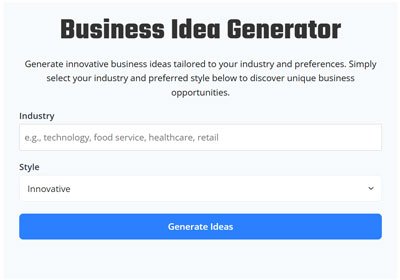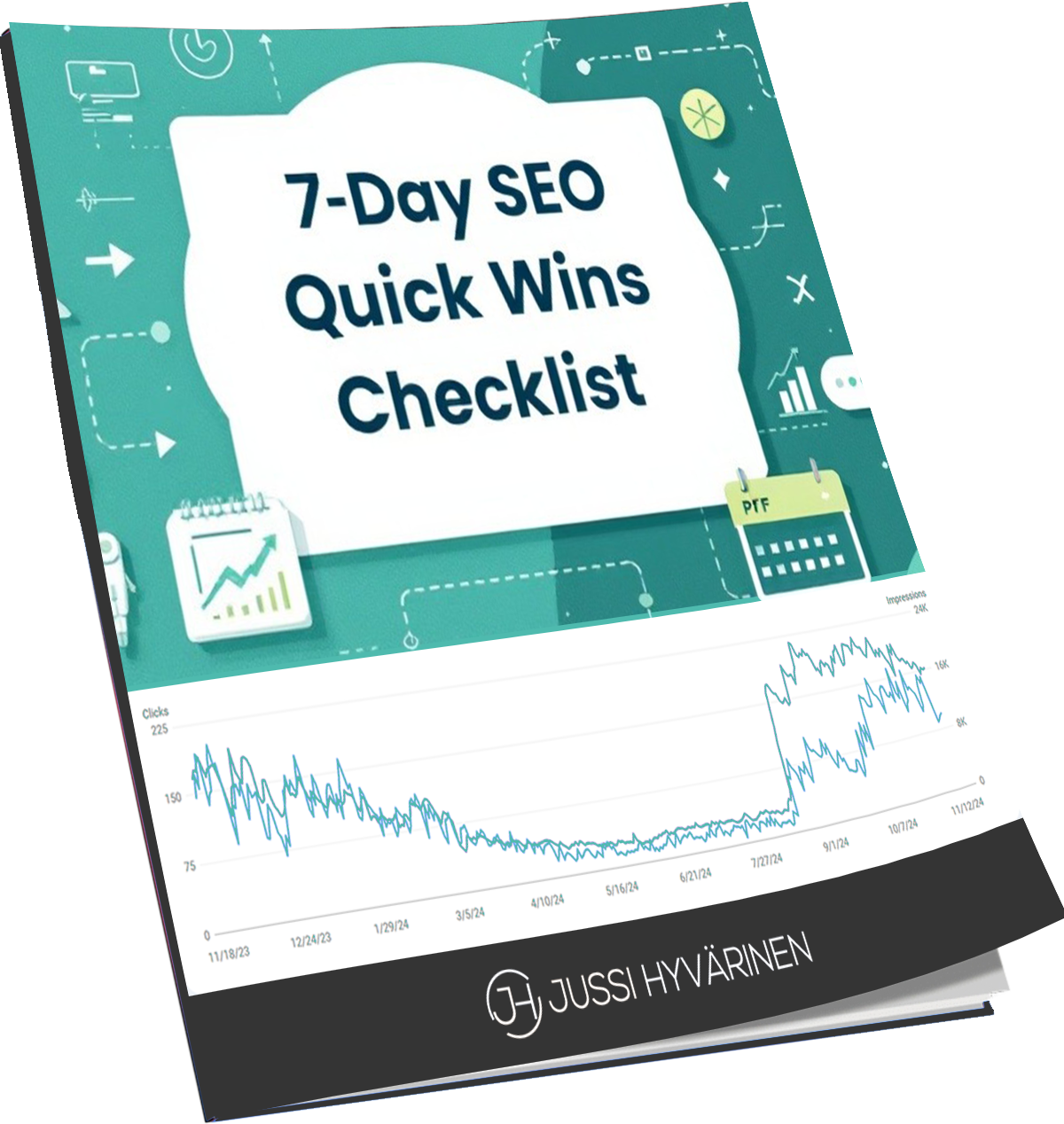Small-scale businesses are firms or entrepreneurs that operate on a limited scale in size, revenue, and employees, often serving a local or niche market.
Are you looking to start your own small business? Launching a successful small business venture can be a gratifying financial and personal experience. Your entrepreneurial dreams can become a reality with the right strategies, insights, and planning.
This comprehensive guide provides aspiring business owners with helpful information and practical tips for getting started. We will cover topics like:
- Defining small businesses
- Benefits and challenges
- Financing options
- Business planning
- Identifying your target market
- Marketing strategies
- Home-based business ideas
- Online business ideas
- Food-related business ideas
- Service-related business ideas
- Crafting and arts business ideas
- Retail storefronts and boutiques
- Franchising opportunities
- Utilizing professional resources
Let's get started!
Definition of Small Businesses
The Small Business Administration (SBA) defines a small business as an independently owned and operated company that is limited in size and revenue depending on its industry. Generally, small businesses have fewer than 500 employees.
These businesses make up 99.9% of all firms in the U.S. and account for over 60 million jobs. Small businesses come in all shapes and sizes across all industries. Small business owners are innovators and creators, from local restaurants to tech startups.
Types of Small Businesses
There are several common types of small business legal structures to consider when starting your venture.
Sole Proprietorship
This is the most common and simplest business structure. It involves one individual owning and running the business. The owner has complete control, is entitled to all profits, and assumes full liability. Minimal paperwork is required.
Partnership
A partnership involves two or more individuals sharing ownership of a business. Partners combine skills and resources and share profits as well as losses. A formal partnership agreement is recommended to outline responsibilities.
Limited Liability Company (LLC)
An LLC provides personal liability protection for business owners while allowing pass-through taxation. It is a popular choice for small businesses. An LLC has members rather than shareholders and requires articles of organization.
S Corporation
This corporate structure offers liability protection and taxation benefits. Only eligible domestic businesses with 100 shareholders or less can become an S corp. Owners pay themselves wages.
C Corporation
This is a more complex structure that is better suited for larger businesses. C corps require more paperwork, administration, and double taxation. Owners pay corporate taxes on profits and income taxes on dividends.
Each structure has its own pros, cons, and legal implications. Consult an attorney or accountant to determine the best option for your needs.

My free business idea generator creates innovative business ideas tailored to your industry and preferences. Simply select your industry and preferred style below to discover unique business opportunities.
Benefits of Starting a Small Business
Launching a small business comes with many rewards if done successfully. Consider these advantages:
- Be your own boss – Enjoy the freedom and flexibility of being in charge. You make the decisions.
- Creative freedom – Bring your vision to life. Small businesses allow you to share your passions.
- Financial potential – Successful ventures can be quite lucrative over time. Many businesses start small.
- Community impact – Small businesses often support local communities. Make a difference by doing what you love.
- Personal fulfillment – Entrepreneurship can be deeply satisfying and empowering. Turn your dreams into reality.
Challenges of Small Businesses
Starting and running a small business also comes with difficulties and risks. Be prepared for challenges like:
- Time commitment – Expect long hours, especially in the beginning. Running a business takes continuous effort.
- Financial uncertainty – Revenues can fluctuate, especially early on. Have funds available to cover costs.
- Wearing many hats – As an owner, you'll handle diverse tasks from finance to marketing. Juggling roles can be tiring.
- Building customer base – Attracting enough customers and clients takes time and smart marketing.
- Adapting to changes – Markets evolve. Be ready to make pivots while sticking to your vision.
By understanding both the advantages and challenges, you can prepare adequately for the reality of entrepreneurship. Your passion and perseverance will drive your potential for success.
Financing Your Small Business

Access to capital is essential when starting a small business. Carefully consider your financing options, as they can impact cash flow and profitability.
Personal Funds
Many entrepreneurs self-fund using personal savings, home equity, credit cards with rewards, retirement accounts, or funds from friends and family. This allows you to maintain control but can be risky.
Business Loans
Traditional bank loans, SBA-guaranteed loans, and microloans provide access to capital for qualifying businesses. Lenders want to see detailed business plans demonstrating profitability and ability to repay. Interest rates and terms vary.
Crowdfunding
Using online platforms like Kickstarter and Indiegogo to raise funds from backers is a trending option. You pitch your idea and set a fundraising goal. Backers donate and receive rewards.
Angel Investors
These high-net-worth individuals provide startup capital in exchange for equity shares in early-stage businesses they believe in. This financing source is best for innovative, scalable companies.
Grants
Federal, state, and private organization grants support certain small business owners, including women, veterans, minorities, and those in rural areas or industries like tech. Applications and qualifications vary.
You may also benefit from exploring cost-saving tools and services provided by Utility Bidder, which can help reduce operational expenses and improve financial efficiency.
Each financing method has upsides and downsides to weigh. Seek professional advice on the best strategies for funding your specific venture. Ongoing access to capital will be vital for growth.
Developing Your Business Plan
After identifying your small business idea, the next essential step is creating a comprehensive business plan. This strategic document will clearly map out all aspects of your envisioned company.
Here are key sections to include in your plan:
- Executive Summary – A high-level overview of your business, products/services, objectives, competitive advantages, management team, and projected profitability.
- Company Description – Details about your company's mission, vision, values, location, legal structure, history, and ownership.
- Market Analysis – Research findings on your industry, target market, customers, competitors, trends, opportunities, and threats.
- Products and Services – A description of what you will sell, sources, costs, pricing, and benefits to consumers.
- Marketing Plan – Strategies for promoting your business and products to customers, including advertising, digital marketing, partnerships, etc.
- Operational Plan – How you will produce, deliver, and support your offerings. Cover production, inventory, suppliers, systems, and day-to-day processes.
- Management Team – Background on owners and key personnel, their experience and skills. Include professional resumes.
- Financial Plan – Projected financial statements, including income statements, balance sheets, cash flow statements, and break-even analysis. Cover startup costs, revenues, operating expenses, profit margins, and funding requirements.
A solid business plan demonstrates extensive research and planning. It will be key for attracting investors or lenders to provide startup funding. Conduct market research to create realistic projections.
Identifying Your Target Market
Identifying a well-defined target market is essential in starting any successful business. This includes understanding your ideal customer base and how to reach them effectively.
Start by researching your industry thoroughly to identify gaps, trends, demographics, and potential opportunities. Use market research tools and data sources to analyze competitors and consumer demand.
Create detailed buyer personas representing your most likely customers. Include information on their age, location, gender, income level, interests, pain points, and where they access information.
Determine where your target customers spend their time online and offline. Brainstorm the best channels and strategies to connect with them through marketing and advertising. These may include:
- Social media platforms like Facebook, Instagram
- Web banner ads, pay-per-click ads
- Trade shows and networking events
- Local community boards and newsletters
- Strategic partnerships with complementary brands
- SEO to rank well in relevant Google searches
The goal is to tailor your messaging and outreach to resonate with your clearly defined audience. Track engagement metrics to see what content and platforms perform best. Consistently refine your approach.
Marketing Strategies for Small Businesses
Developing an effective marketing strategy is crucial for small business success. This will require in-depth planning and tactical execution.
Start by researching low-cost tools and resources provided by the Small Business Administration. Their website offers guidance on marketing, technology, training programs, and more.
Next, build your brand identity. Choose a memorable business name, professional logo, and consistent branding. Develop clear messaging that communicates your competitive edge.
Content marketing through blogging, videos, and social media is essential for attracting potential customers. Share valuable information that builds knowledge, trust, and relationships.
Make sure your website is fully optimized with quality content, easy navigation, seamless user experience, and calls to action. This will increase conversions.
Local SEO strategies like keyword optimization, backlinks, and positive online reviews improve visibility and drive website traffic. Claim and update free business listings on Google, Facebook, Yelp, and other directories.
Paid digital ads and email newsletters further grow brand awareness and sales. Collaborations and co-marketing with other reputable businesses can expand reach.
Track analytics to identify high-performing marketing and consistently refine your strategy over time. Flexibility and adaptation is key.
Home-Based Small Business Ideas

Many great low-cost business ideas can be launched from the comfort of your own home. These ventures typically require minimal startup costs. Consider these popular home-based business options:
- Freelance Services – Offer specialized skills like writing, graphic design, bookkeeping, social media management, web development, virtual assistance, and more.
- Handmade Crafts – Sell homemade jewelry, candles, soaps, quilts, clothing, and other crafts through online stores like Etsy.
- Baking – Prepare baked goods like cakes, cookies, and pies to sell at local farmer's markets or through an online bakery.
- Computer Repair – Provide computer diagnostic services, repairs, and technical support to residential and business customers.
- Pet Care – Walk dogs, board pets, visit for feedings, transport animals, or offer other pet services.
- Cleaning – Launch a residential or commercial cleaning business specializing in areas like housekeeping, carpet cleaning, window washing, and janitorial services.
- Tutoring – Teach music lessons, academic subjects, test prep, languages, and other skills in person or virtually.
- Gardening – Offer lawn care and landscaping services like mowing, trimming, planting, weeding, and outdoor maintenance.
Home-based businesses keep overhead costs low and let you initially work around your schedule. Scale up as demand grows by hiring staff or expanding to a dedicated office space.
Online Business Ideas

The Internet provides a wealth of opportunities for aspiring entrepreneurs to launch online businesses from anywhere. Consider these options, even as a side hustle:
Dropshipping – Sell products stored and shipped by wholesale suppliers so you don't have to keep inventory. Profit comes from marking up prices. Best for tangible goods with high demand.
Blogging – Launch your own website covering topics you're passionate about. Monetize through ads, affiliate marketing, online courses, virtual summits, and consulting.
Influencing – Build a large social media following on platforms like Instagram or TikTok. Profit through sponsorships, brand partnerships, merchandise sales, and appearances.
Information Products – Create digital products like eBooks, courses, templates, guides, membership sites, and software to sell online. Useful for knowledge-based businesses.
Print-on-Demand – Upload custom designs to platforms like CafePress. Products are only printed when customer orders come through. Little overhead is required.
Web Design – Build and customize sites for small businesses. Offer services like web hosting, SEO optimization, security, and maintenance.
App Development – Develop utility apps, games, and digital tools for mobile devices. Publish your products in Google Play and Apple App stores.
The benefit of online businesses is their global accessibility and scalability. With minimal startup costs, focus on validated ideas, automated processes, and excellent digital marketing.
Food-Related Small Business Ideas

The food industry presents many tasty opportunities for aspiring entrepreneurs. Turn your passion for cooking and baking into a profitable business.
- Catering – Provide specialized menus and food services for events and gatherings. Can start from your licensed home kitchen.
- Food Truck – Purchase and operate a mobile food unit to sell dishes from different locations. Offers flexibility.
- Meal Prep Delivery – Prepare healthy, customized meals for busy clients. Deliver to homes/offices weekly. Streamline with automation.
- Personal Chef – Visit clients in their homes to cook meals personalized to their tastes and dietary needs. Position as a luxury service.
- Specialty Food Shop – Sell gourmet foods like chocolates, cheese, coffee, spices, oils, and more. Focus on sourcing high-quality artisanal products.
- Bakery – Set up a retail or online bakery selling cakes, breads, pies, cookies, and other freshly baked goods. Consider special or seasonal offerings.
- Candy Shop – Craft handmade candies, chocolates, popcorn, fudge, or other confections to sell in creative flavors and packaging.
Food businesses must comply with health regulations. Develop safe kitchen protocols. Success comes from excellent products, customer service, and smart digital marketing.
Service-Based Small Business Ideas

Offering professional skills and services is a scalable business model. Explore these options:
- Business Consulting – Advise small business clients in areas like marketing, HR, operations, finance, technology, and project management.
- Bookkeeping – Provide bookkeeping, payroll, invoicing, tax preparation, and financial services for businesses and individuals.
- Residential Cleaning – Offer eco-friendly cleaning, maid, and janitorial services for homes. Can expand to offices.
- Errand Services – Help busy professionals by running errands like grocery shopping, dry cleaning drop-off/pickup, prescription pickup, package shipping, and more.
- Interior Design – Provide custom interior design services including space planning, decorating, staging, color schemes, lighting, furnishings, and remodeling oversight.
- Photography – Offer specialized photography for portraits, weddings, events, real estate listings, products, and more.
- Resume Writing – Craft professional resumes, cover letters, LinkedIn profiles, and other employment-related content for clients seeking jobs.
Focus on personalized experiences, transparency, reliability, and building client relationships. Leverage digital tools and platforms to manage operations and scheduling efficiently.
Crafting and Arts Small Business Ideas

Creative crafts and handmade artisan goods are very marketable. Use your talents to start one of these ventures:
- Jewelry Making – Create original jewelry like necklaces, rings, bracelets, and earrings to sell online or at craft fairs.
- Pottery – Make decorative ceramics like mugs, plates, bowls, vases, and figurines. Set up a home studio or shared workspace.
- Candle Making – Craft custom-scented soy candles in artistic vessels. Market as gifts or enhance rooms with pleasant aromas.
- Soap Making – Produce all-natural handmade soaps and bath products using ingredients like essential oils and shea butter.
- Woodworking – Build and sell custom furniture, cutting boards, décor, toys, and other specialty wood items.
- Knitting/Crocheting – Fashion stylish apparel, blankets, accessories, baby items, and home goods. Offer made-to-order.
- Painting/Drawing – Sell original or customized paintings, portraits, murals, and other artwork. Provide live event painting services.
- Photography – Market your artistic photography as prints, calendars, books, digital files, and stock photos.
Craft businesses require creativity and skill. Use platforms like Etsy and art fairs for exposure. Provide excellent customer service and product quality.
Boutiques and Retail Storefronts

A boutique or small retail store can be highly lucrative for entrepreneurs passionate about fashion, home goods, gifts, and specialty products.
Carefully select your retail location based on foot traffic, parking, neighborhood demographics, competition, and accessibility. Negotiate a favorable lease.
Build a strong brand identity with an impressive storefront, signage, and visual merchandising. Offer a curated product mix not available elsewhere.
Provide excellent customer service. Hire knowledgeable staff, arrange appealing displays, play nice music, and foster a welcoming ambiance. Offer gift wrapping.
Use CRM software and inventory management tools for purchasing, receiving, pricing, and reporting. Keep popular items stocked. Remove stagnant merchandise.
Omnichannel retailing integrates your physical store with e-commerce. Allow online ordering, in-store pickup, and ship-to-home. Sync online and offline pricing, inventory, and CRM data.
Marketing efforts like email newsletters, loyalty programs, and seasonal sales attract repeat business. Partner creatively with other local enterprises.
You can build a destination business that drives foot traffic by differentiating your boutique with unique finds, customization, and personalized service.
Franchise Opportunities
Purchasing a franchise enables entrepreneurs to get started with an established brand. Benefits include:
- Turnkey Model – Franchises provide a proven business model, eliminating much trial and error. Systems, operations, and marketing are pre-developed.
- Brand Recognition – Customers are familiar with major franchises, fueling sales. There is no need to build brand visibility and trust from scratch.
- Training – Franchisors offer training programs covering operations, technology, policies, and more to set you up for success.
- Ongoing Support – You gain access to corporate teams who provide advice and assistance on real estate, suppliers, marketing, and growth.
- Buying Power – Being part of a large franchise network provides advantages in sourcing, distribution, and purchasing that are not possible independently.
The downside is less flexibility and higher upfront costs. Weigh options carefully to choose a franchise that fits your skills, interests, and goals. Be prepared to follow their established systems.
Professional Resources for Small Businesses
As a new entrepreneur, don't go it alone. Connect with professionals who can provide valuable insights, guidance, and services in areas where you lack experience.
Accountants handle essential financial processes like payroll, bookkeeping, taxes, and preparing financial statements. Choose one that specializes in small businesses.
Lawyers assist with contracts, incorporation, intellectual property, and compliance issues. They can review documents and agreements.
Insurance agents help protect your business by identifying key risks and recommending appropriate policies for coverage. Common needs are general liability, professional liability, property/casualty, and workers' compensation.
Bankers and lenders provide financing advice and facilitate accessing small business loans and credit lines to fund operations and growth.
Marketing consultants can objectively assess your branding, advertising, and go-to-market strategies. They identify opportunities for refinement and improved ROI.
HR consultants ensure you comply with employment laws and provide guidance on hiring, compensation, policies, training, and personnel issues.
IT and web consultants set up secure networks, advise on business software and systems, build functional websites and e-commerce platforms, and provide ongoing technical support.
Mentors who have built successful enterprises can share invaluable real-world insights on avoiding pitfalls and overcoming entrepreneurs' unique challenges.
Trade organizations and local Chambers of Commerce facilitate networking opportunities and industry connections. They provide helpful resources, advocacy, and community outreach.
Don't let a lack of knowledge hold you back. The right professional support provides strategic advantages that can be instrumental to converting your business idea into a thriving company.
Frequently Asked Questions
What financing options are best for startups?
The ideal financing mix depends on your business model and financial situation. Many entrepreneurs start with personal funds from savings. Outside financing to consider includes:
- SBA small business loans.
- Crowdfunding.
- Business credit cards.
- Equity financing from angel investors or venture capital firms.
Weigh options based on costs, repayment terms, risks, and how much control you retain.
What permits and licenses are needed?
Requirements vary based on your business activities and location. Commonly required permits and licenses include a sales tax permit, a food handler's permit if selling food, professional licenses for service professionals, zoning permits, and a formal business license from your state and/or city.
Check regulations for your industry and locale.
How much money do I need to launch?
While amounts vary widely, most experts recommend having at least six months of operating expenses on hand.
Analyze costs for startup purchases, inventory, equipment, lease payments, insurance, payroll, marketing, contracted services, and other overhead. Build an emergency reserve to sustain you until revenue begins flowing steadily.
What are the advantages of starting online?
Online businesses provide easier startup since you don't need a physical commercial location. You can launch a website immediately. Other benefits include global reach, lower overhead, flexible hours, scalability, and utilizing automation for efficiency. Make sure to master digital marketing strategies.
What Are The Tax Implications Of Owning A Small Business?
As a small business owner, you have certain tax obligations and responsibilities.
The first thing to consider when considering the tax implications of owning a small business is whether or not you'll need to register for income tax.
Some strategies can help reduce your overall tax burden when filing taxes as a small business owner. For example, investing in certain equipment or investments can result in deductions from your taxable income.
How do I attract customers initially?
Building a customer base takes consistent effort. Start by creating awareness through your website/social media, SEO optimization, local advertising, grand opening events, partnerships, direct outreach campaigns, and word-of-mouth referrals.
Offer promotions like discounts or free gifts to incentivize first purchases. Deliver on your brand promise.
Conclusion
Launching a successful small business is a rewarding endeavor that offers both financial and personal fulfillment. You can turn your dream into a thriving enterprise with passion, planning, hard work, and support.
Define your competitive edge. Connect with customers authentically.
Mind the details without losing sight of the big picture vision. Learn and adapt as you go.
By staying nimble, creative, and committed in the face of challenges, you will be well on your path to entrepreneurial prosperity and independence.


